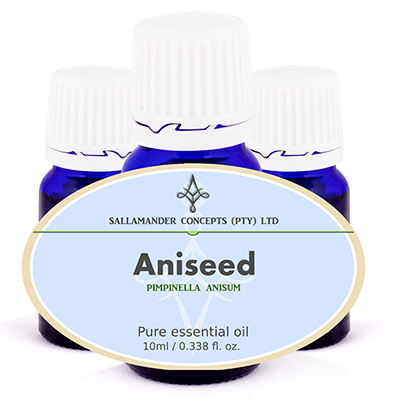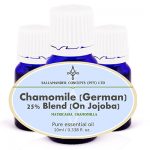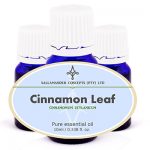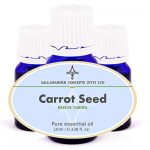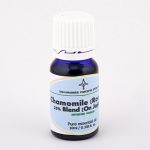Aniseed essential oil information
Our aniseed essential oil is extracted from the seeds of the herb Pimpinella anisum (also known as P. officinale and vulgare), of the Umbelliferae family.
It has a pungent liquorice-like smell and is also known as anise and sweet cumin. It should not be confused with Illicium verum, which is star anise and belongs to the Illiciaceae family.
This warm, spicy essential oil is often used in aromatherapy to ease the discomfort of introverted and fearful people, while aiding the digestion, boosting the lungs and easing migraines and headaches.
Oil properties
The oil is of medium viscosity and will solidify at low temperatures. It may need to be hand-warmed before use.
Origin of Aniseed essential oil
Aniseed originated in the Middle East and is now cultivated in Europe, USA and North Africa.
It is an annual herb, about 80 cm (2 feet) high with delicate feathery leaves, tiny white flowers and grayish-brown seeds.
Aniseed essential oil was revered by ancient civilizations, especially by the Romans, Egyptians and Greeks. The Romans used it in a spicy cake know as ‘mustaceus’, the Egyptians used it in bread, while the Greeks used it for its calming influence on the digestive tract.
Aniseed is used in liqueurs and cordials, toothpastes and mouthwashes. In India it is used as a breath sweetener and in Turkey, a popular alcoholic drink called ‘raki ‘ is made from the seeds.
Extraction of Aniseed essential oil
The oil is commonly extracted by steam distillation from the dried ripe fruit and seeds.
Chemical composition of Aniseed essential oil
The essential oil includes the following chemical compounds; a-pinene, camphene, b-pinene, linalool, cis-anethole, trans-anethole, safrole, anisaldehyde and acetoanisole.
Suggested precautions
Aniseed essential oil contains trans-anethole which can cause dermatitis in some individuals. It is best avoided in problem skin conditions. It can also slow down the circulation and can cause cerebral congestion if used in large doses.
Trans-anethole has an oestrogen-like action. This suggests that Aniseed / Anise essential oil should be avoided in pregnancy, during breast feeding and by women suffering from endometriosis or oestrogen-dependent cancers.
Research into the safety of this essential oil is not conclusive and all precautions offered err on the side of safety.
Please read our page with heading: Safety with Essential Oils before using this oil.
We recommend the following book as an excellent resource regarding safety:
Essential Oil Safety: A Guide for Health Care Professionals by Robert Tisserand & Rodney Young (#ad)
Suggested dilution rates
On the skin:
Healthy adults over 15 years of age:
For use on healthy, unbroken skin – starting low and gradually increasing to a 2% dilution in a safe exipient / carrier.
We recommend:
- that this oil NOT be used on children under the age of 5 years
- that you always start treatment with a low dilution rate and increase the rate to the maximum over time
- a maximum dilution rate of 0.5% to 1.5% on children from 5 to 15 years of age and on the very elderly or infirm.
- that this oil NOT be used by pregnant or breast-feeding women
- that you immediately stop using any essential oils should irritation or allergy occur. Refer to a registered medical doctor for treatment.
Burners and vaporizers
In vapor therapy, a few drops (2 to 8) of aniseed or anise essential oil is useful for asthma, colds and all breathing problems, as well as to quell nausea and vomiting.
Drops of oil on a handkerchief
When used on a handkerchief to smell at, it is useful for settling digestive problems and can also benefit migraine and vertigo sufferers.
Therapeutic properties of Aniseed or Anise essential oil
The therapeutic properties of aniseed oil are antiseptic, antispasmodic, carminative, diuretic, expectorant, stimulant, galactagogue, stomachic, insecticide, laxative and parasiticide.
Uses of Aniseed or Anise essential oil
Aniseed essential oil can be useful in the treatment of muscular aches and pains, rheumatism, bronchitis, whooping cough, colic, cramp, flatulence, indigestion, catarrh and hangovers.
Summary
Aniseed or Anise essential oil is not only helpful for its effect on the digestive system, it is also a general tonic to the circulatory system and the respiratory tract. It helps to calm the nerves of tense and anxiety ridden people. It also calms menstrual pains and eases nauseous migraines, while stimulating the lungs to expel phlegm.
Aniseed or Anise essential oil blends well with
Although essential oils blend well with one another, Aniseed oil goes particularly well with other essential oils such as cardamom, caraway, cedarwood, coriander, dill, fennel, mandarin, petitgrain and rosewood.

